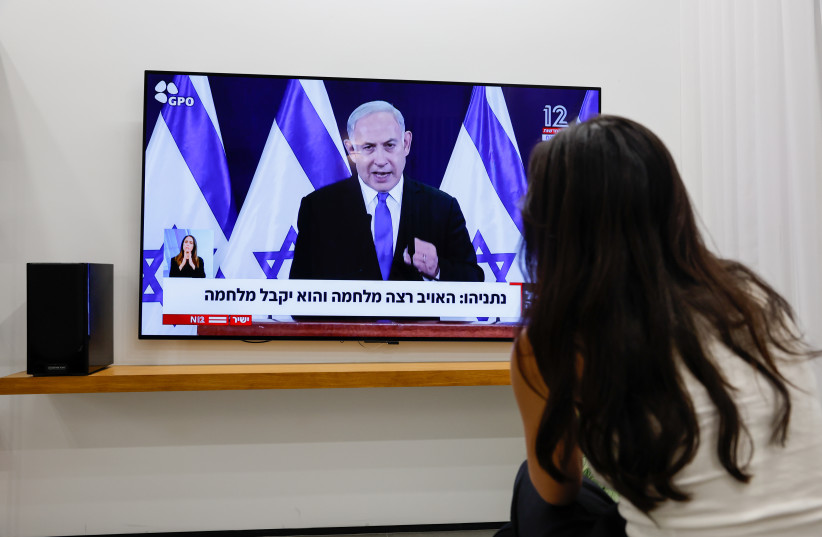Israel’s Public Diplomacy Directorate, the cornerstone of the nation’s global communication efforts, has been without a director since the onset of 2023, following Prime Minister Benjamin Netanyahu’s criticisms of the directorate’s effectiveness, particularly in terms of deficiency in English proficiency among its personnel.
On Wednesday, Netanyahu said that the “national advocacy” (public diplomacy) is not working properly and that “there are no people who can connect word to word in English.”
Therefore, while advocacy for Israel is so important, particularly at present, the position of the head of the Public Diplomacy Directorate has remained vacant since the beginning of 2023.
Established in 2008 by veteran Yarden Vatikay, the directorate has been pivotal in orchestrating Israel’s public diplomacy, ensuring cohesive and strategic communication across various state and non-state entities. Its role has been especially critical in articulating Israel’s governmental policies and its stance on international matters, including during periods of crisis.For instance, it regularly convenes in a format of a national advocacy forum to discuss the formulation of a uniform, coordinated advocacy policy, both proactively and in response to anticipated events. The directorate includes representatives from the Prime Minister’s office, the Foreign Affairs Ministry, Diaspora and Combating Antisemitism Ministry, IDF Spokesperson, Israel Police, the intelligence community, the Government Press Office, and more.
According to the topics at hand, representatives of relevant government ministries also join the forum discussions.
Further, it maintains ongoing contact with many pro-Israel bodies operating both in Israel and worldwide. It cooperates with these bodies in promoting the goals of the State of Israel and the nation’s positions in places where these bodies operate. The directorate passes on the main messages of Israel’s advocacy and assists in producing advocacy materials that will help spread Israel’s message.
Directorate convenes forum discussions with broad range of participants
Therefore, the directorship vacancy starkly contrasts the urgency of adept advocacy, as underscored by Netanyahu’s comments and the backdrop of ongoing regional conflicts.
Traditionally insulated from political appointments to preserve its professional ethos, the directorate has seen its last professional head exit at the beginning of 2023, leaving a notable gap in Israel’s advocacy framework.The process to fill this crucial role began belatedly in August 2023, a significant delay that spans across most of the current government’s tenure to date. This period of leadership void has overlapped with heightened geopolitical tensions and the outbreak of conflict in October, spotlighting the critical vacancy amidst a need for proficient public diplomacy.With the candidate selection process inching forward and interviews only recently initiated, there is no clear indication of when a new director will be appointed. This delay has sparked public criticism, including from Netanyahu, who has expressed concern over the scarcity of skilled individuals for international advocacy roles.Leon Kreim contributed to this report.
